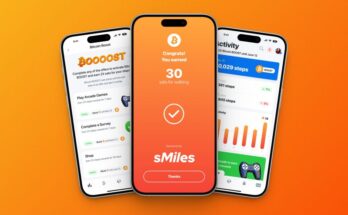Again, we’re not a vaccine manufacturer, but I can comment as far as drugs are concerned. We don’t see this as a place to drive profit. I think most of the major vaccine manufacturers have also committed to providing broad access at either reasonable or minimal cost. Now, very quickly, the question would be: Who gets the vaccine first? If you go back to the H1N1 vaccine in 2009, that was a big question, and in the end the decision was taken to prioritize pregnant women and children. There were also geographic considerations, and Europe and the US ended up getting vaccine in that moment before Latin America, Africa, and Asia. So, I don’t know exactly how this is going to play out. There’s three main camps: a US-funded camp, a European-funded camp, and then there’s China. And how whoever wins the race will ultimately allocate doses has not at all been determined, as far as I know.
Anti-vaxxers are already telling people not to take whatever is developed. What’s the role of the drug industry in convincing people that a safe and effective vaccine should be taken by all?
We as an industry should want a very robust data package to back this up, because the worst thing that could happen is that vaccines go out and cause an adverse event we weren’t expecting. Then, people lose faith in vaccines more broadly. It’s easy to forget the only reason we live in such healthy times is because of the advances in vaccines and medicines. Unfortunately, the anti-vaccine lobby now has the power of social media. The only way we’re going to combat it is with data, and credible scientific leaders speaking out in the media as well.
Novartis released a study recently that indicated because of the current crisis, more talented people are considering going into healthcare and the medical sciences. Do you think that Novartis and others will be able to hire people who ordinarily would go to Google or Amazon?
We hope so. This crisis has led to a big shift in the overall view of the sector and the industry. I think if you look at most of the surveys that have been put out by the various firms, you’ll see a significant favorability shift overall on the pharmaceutical industry. We made a big investment in data science and digital two years ago, well over $500 million. We hired talent from Amazon, from IBM, from Google, to lead the various elements. I think the arms race now in our industry is going to be who can digitize many of these elements much more quickly than the competition.
One factor in drawing talent might be your industry’s problem with trust. A couple of weeks ago, attorneys general from 50 states and territories, plus DC, filed a complaint against Novartis’ Sandoz Division and other companies for allegedly colluding on prices. In general, people feel drug prices are way out of line. What are you doing to win back trust? Can we expect an end to some of these crazy price increases?
One of our top priorities as Novartis is to build trust with society. And one of the things we’re going to need to do as a company is put behind us many legacy matters. The Sandoz topic that you just discussed all happened pre-2015. We’ve already settled with the federal government and now of course the states’ attorneys have come back, and we will of course defend our position. If you go back to the history, in the 1960s, 70s, 80 and 90s, [pharma] was the most revered industry because of the incredible breakthroughs that were being brought to extend human life. In recent decades, the combination of not always appropriate business practices, and inappropriate pricing practices, has eroded all of that trust. So now we need to build it back. I can’t undo the past 20 years, but at least going forward we can try to do the right things. Our margin for error is very small. Nobody is going to cut us any slack. That’s what the challenge is to lead a company like this. How can you remind people we create medicines for 900 million people all around the world, even through a pandemic, and have that be the story and not all of the missteps?


